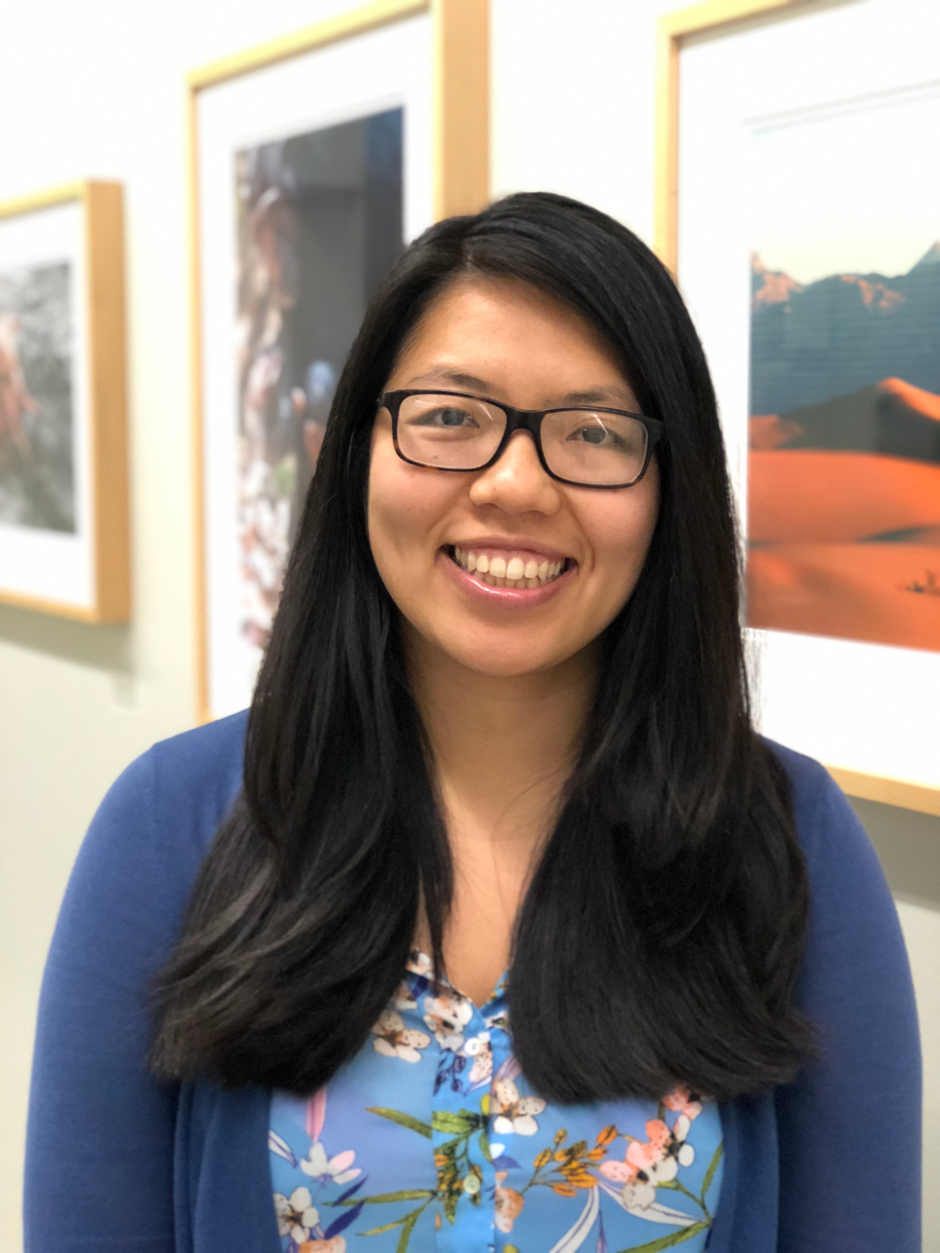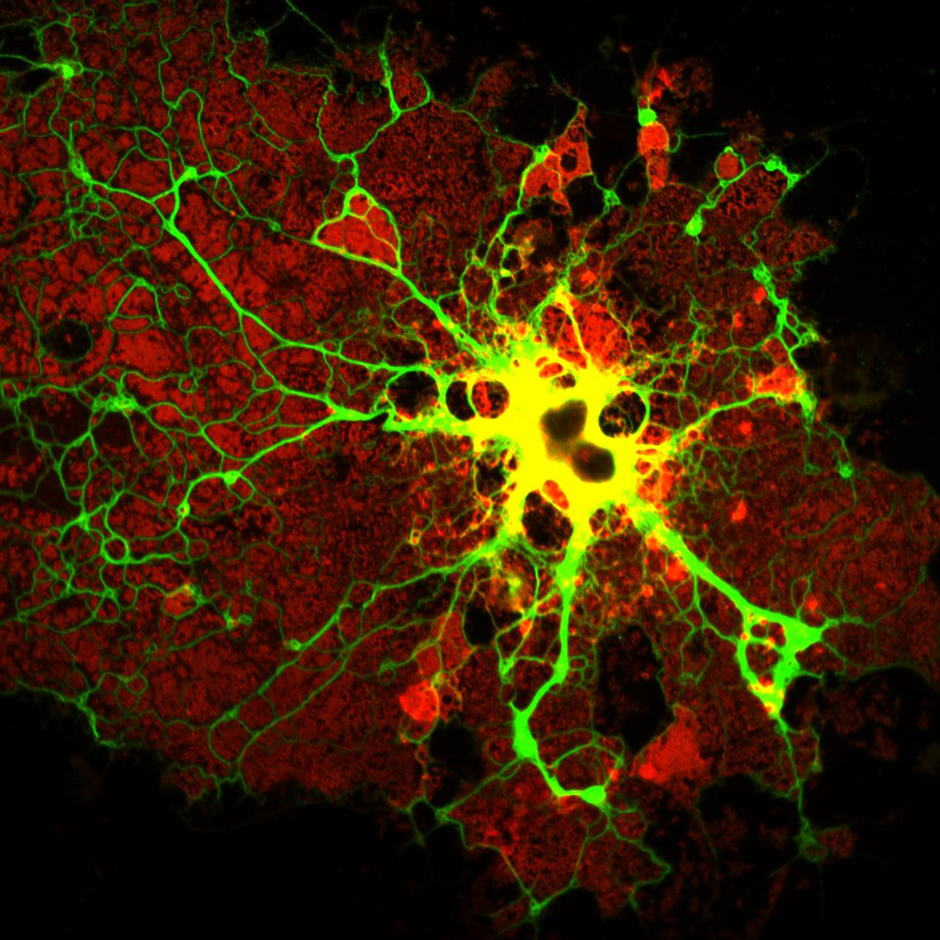
New Faculty Profile
Early Impact: Meng-meng Fu’s Approach to Both Research and Mentorship
By Kirsten Mickelwait
Like the cells she studies, Meng-meng (pronounced “Mung-mung”) Fu’s career path has moved quickly across a broad landscape. In January, the neurobiologist joined MCB’s faculty as an assistant professor of cell biology, development, and physiology.

Fu comes to MCB from the National Institutes of Health (NIH) where, as a tenure-track investigator and unit chief of glial cell biology, she led a lab of seven at the National Institute of Neurological Disorders and Stroke (NINDS). Together, they studied the cell biology of oligodendrocytes — the myelinating cells of the central nervous system — and made an important discovery about neurodegenerative disease.
Fu describes her work in transportation metaphors. Using live-cell microscopy, biochemistry, and biophysics techniques, her doctoral research studied the regulation of axonal transport. “All cells contain structures called microtubules, which function like railroad tracks to deliver cargos throughout the cell,” she explains. “Neurons, the electrically active cells in the brain, contain long protrusions called axons. Long-distance motor proteins, kinesin and dynein, function like engines on microtubule railroads and are especially important in cell protrusions like the axon. I found that an adapter protein that links the motor proteins with the cargos can be further modified to determine which motor is active.”
Building upon that work, she extended her expertise in microtubules and transport to oligodendrocytes. Like neurons, oligodendrocytes also extend many cellular protrusions containing microtubules. Fu focused on two aspects of microtubule biology: how microtubules can sometimes form outside the cell body, and how mRNA is transported along them within the oligodendrocyte so that proteins are made where they're needed most.
That led to Fu’s NIH research around TPPP (tubulin polymerization promoting protein), which can nucleate or form new microtubules in oligodendrocytes. However, TPPP can also aberrantly aggregate in oligodendrocytes in a neurological disease called multiple system atrophy (MSA), a condition that shares many symptoms with Parkinson’s Disease. MSA patients, however, decline much more quickly.
Born in China, Fu moved to the U.S. with her family when she was eight years old. In high school, though she excelled at science fairs, she didn’t realize that she could become a research scientist herself. She was accepted to medical school as an undergrad at the California Institute of Technology, but during her preceptorship at a hospital she realized that the day-to-day routine of a doctor didn’t interest her. Instead, finding the root cause of disease and the normal biology underlying cellular processes seemed much more compelling.

So Fu changed track and applied to graduate school — earning her PhD in neuroscience in Erika Holzbaur’s lab at the University of Pennsylvania and then her postdoc in neurobiology in the Ben Barres Lab at Stanford — before joining the NIH in 2020. There, her lab studied glial function at animal, cell, and protein levels to understand the mechanisms of normal development and disease progression. “It’s extremely important first to understand normal cell biology, which is the primary focus of our lab,” she says, “and then to apply that knowledge to disease.”
While at NINDS, Fu received a Director’s Excellence in Mentoring Award in 2023. But because the NIH is not a teaching institution, she found she missed the opportunity to work with students earlier in the academic pipeline. “What I've realized is that a really important aspect of what we do as scientists is to promote the next generation,” she says. “I believe I can make a bigger impact by interacting with undergraduate and graduate students, especially to promote diversity, equity, and inclusion.” After a dual-career job search, she and her husband, also a professor, were excited to start at Berkeley as the ideal place for both of them.
Fu, who comes from a low-income background herself, welcomes the opportunity to work with a more diverse community of undergraduate students, many of whom represent underserved populations. “I love that Berkeley is a public university,” she says.
As a teacher and a mentor, Fu has a simple philosophy: “I just want my students to be happy,” she says. “Each person has a different learning style, working style, and communication style. It’s my job to figure out how to work with them in the most efficient way, and to help them to achieve their personal and professional goals. Sometimes young people don't yet realize what their strengths are, or how smart and talented they are.”
Fu is busy setting up her lab and will begin teaching in the fall. In the meantime, you can read her faculty profile here.
Back to Main Spring 2023 Newsletter Page
| Connect With Us! | ||||
MCB Twitter |
 LinkedIn Postdocs, PhDs, or Undergrads |
 Cal Alumni Network |
 Give to MCB |
|
